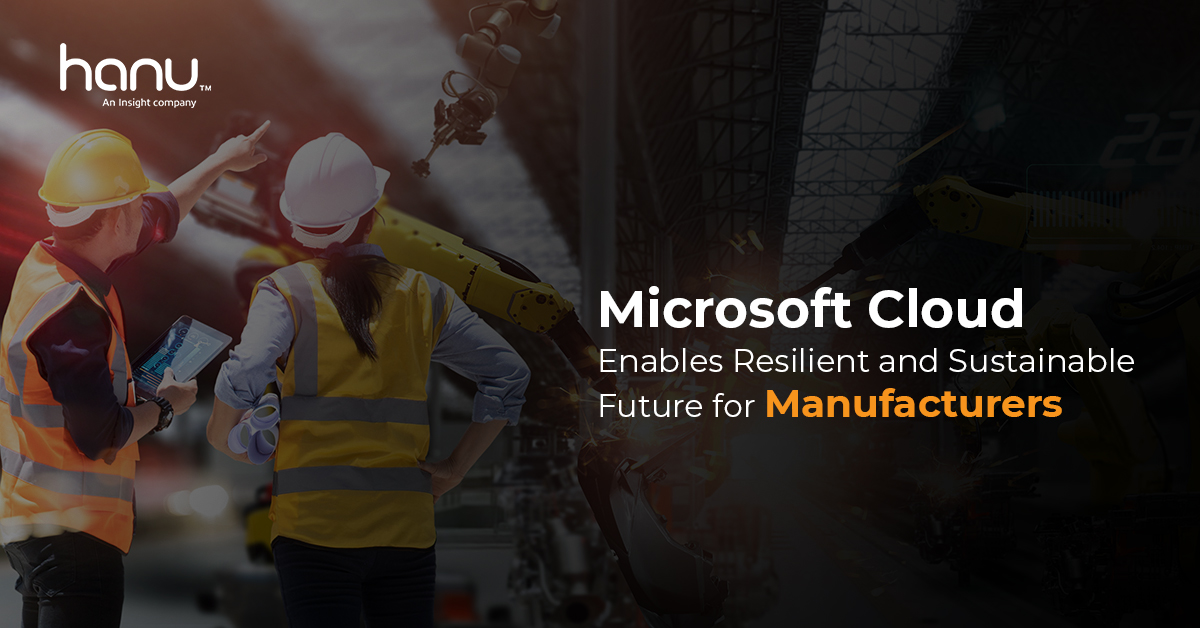
Last two years were filled with unimaginable things due to the pandemic. The world as we knew it just changed. Pandemic taught us the most important lesson that traditional ways of doing business are not sufficient in the era of fourth industrial revolution. Every industry faced significant disruption in business continuity, operations, work, and employee safety etc., and the markets turned upside down due to delays in supply chain, new markets got established, and the fierce competition intensified. Business responded and adapted while understood need for continuous improvement for recovery. Now Machine Learning, Digital Twinning, Remote Assist and AI technologies are not farfetched terms but, a mean of survival and thriving.
An integrated, intelligent, scalable, secure, and user-friendly technology platform became critical for businesses while the manufacturing sector grappled with its greatest transformation.
Digital transformation of manufacturing got accelerated in a holistic, end-to-end, and scalable way with Microsoft Cloud for Manufacturing. Businesses increased front-line worker’s productivity and asset in safe and secure factories by connecting intelligent, integrated cloud, and edge capabilities of the Microsoft stack with highest value manufacturing. It enabled remote selling, the unlocking of cloud-based innovation, and always-on customer service.
Manufacturing industry rose to unprecedented challenges by adapting new business processes, models, ways of working and accelerated use of digital technology due to necessity and confidence in its potential. Digital Factory investments increased due to pandemic. A study conducted by Manufacturer Alliance for Productivity and Innovation (MAPI) revealed that 62% leaders surveyed are continuing investments in smart factory and are allocating 20% more to such initiatives than the previous year.
This arose significant concern related to Cyber Physical System (CPS) risk in Operational Technology (OT) and Industrial Control System (ICS) environments such as electricity, water, transportation, data centres, smart buildings, food, Pharmaceuticals, chemicals, oil & gas, and other critical manufactured goods.
Securing the solutions edge to cloud is one of the major concerns for 62% manufacturers. Azure Defender for Internet of Things strengthens and streamlines the IoT and OT security and it has been deployed in world’s largest and complex environments including global 2000 firms in manufacturing, chemicals and life sciences.
Retooling and reskilling of the frontline is essential for attracting, training, and retaining the next generation of workers. Manufacturers are embracing technology which gives them ability to address the existing skill gaps and new needs to secure remote work and enhance safety of frontline workers.
Pandemic has also accelerated need for always on service which creates need of fully connected systems for manufacturers which can provide one single view of customers and assets. This will give the intelligence to enable proactive service, accelerate agent and technician productivity, and simplify the contact centre technology stack to reduce fragmentation and maintenance overhead.
Manufacturers can gain full Visibility across all areas of business and complete control by providing diverse organizations with the right tools to manage their supply chain, operations, finance, and support customer relationships from a single application. Asset Productivity, Always-on-service, Supply Chain Visibility, Learning & Knowledge Management, and more are features of Microsoft Cloud of Manufacturing.
Supply chain shortages is still a struggle for manufacturers so, supply chain visibility is a huge asset. It enables manufacturers to create a digital supply chain twin which can help in predicting disruptions and proactively overcoming them with a digital representation of the physical supply chain. Manufacturers can be prepared for global disruptions by analysing upstream and downstream impact, perform simulations, and model scenarios at scale to determine the best resolution and then automate their response.
Partnerships and ecosystems are crucial to manufacturing a resilient and sustainable future. 85% manufacturers believe in production ecosystems for future competitiveness of their business. Apart from this resilience and sustainability are on top of mind for all manufacturing stakeholders
Microsoft is empowering next generation in today’s new digital age and its collaboration tools are implemented for improving productivity of remote and frontline workers. It also assists in building agile factories, creating more resilient supply chains, and enabling always on service foe customers.
Microsoft cloud for manufacturing bring out best outcomes and capabilities to accelerate time to value for the customers in an end to end holistic and scalable way. It addresses the industry’s need for a platform that enables co-innovation and collaboration.
Hanu can help manufacturers in connecting operations, workforce, design and engineering processes, customer engagements, and the end-to-end value chain with the Microsoft Cloud for Manufacturing.
Follow Hanu on social and visit our Cloud for Manufacturing to know more about the ways we can help manufacturers create a more resilient and sustainable future.



